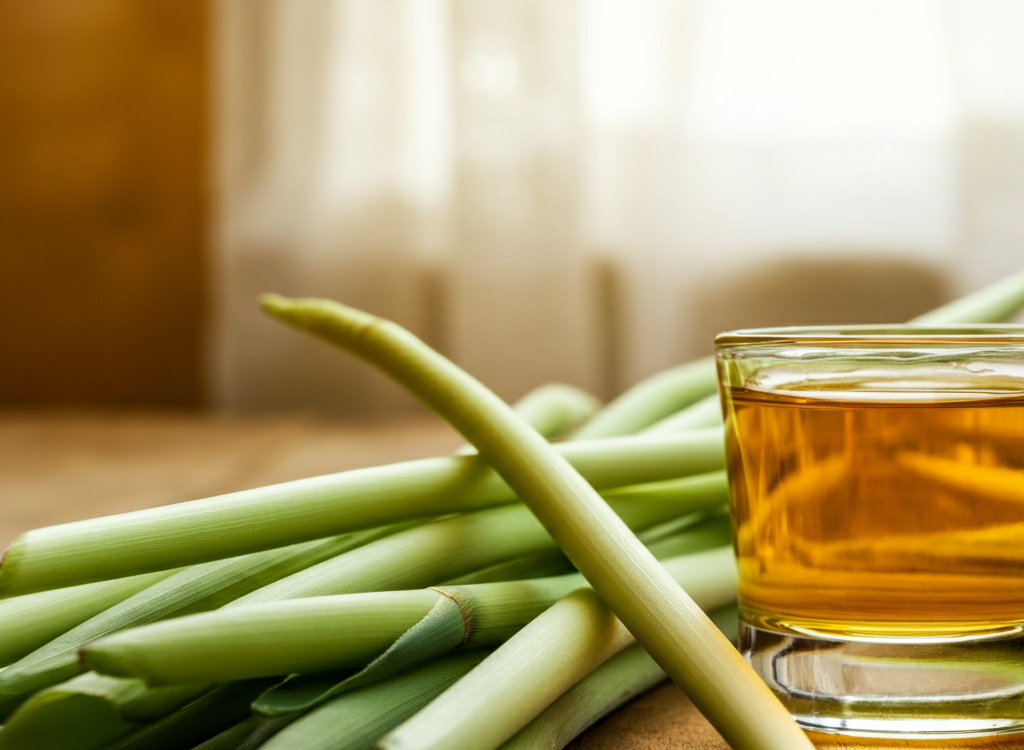Lyposingrass has become a rising star in conversations around natural health and wellness. Maybe you’ve seen it spotlighted on social media as a detox hero, or come across it in herbal teas promising to support weight management and digestion. But what is lyposingrass, really—and does it deserve a place in your daily routine?
In this comprehensive guide, we’ll unpack everything you need to know about lyposingrass, from its origins and science-backed benefits to practical ways to enjoy it. We’ll also take a balanced look at safety, potential side effects, and who should consider incorporating lyposingrass into their wellness journey. Our goal: to give you the knowledge and confidence to make an informed choice, grounded in credible expertise and practical experience.
What Is Lyposingrass?
Despite its sudden popularity in the world of wellness, lyposingrass isn’t a new “miracle plant”—it’s a term used for a category of herbal blends rather than a single botanical species. Typically, lyposingrass products combine beneficial plants like lemongrass, ginger root, dandelion, and green tea extract. These ingredients have well-established histories in traditional medicine for supporting digestion, detoxification, and healthy metabolism (Source: NCBI on lemongrass) (Source: NCBI on ginger).
The term “lyposingrass” itself may have originated in online wellness circles, but its core components are anything but a fad. Enthusiasts praise these blends for helping reduce bloat, ease digestion, and support gentle detoxification. Professional herbalists often recommend these same core herbs when natural support for metabolism or the lymphatic system is desired.
Lyposingrass Benefits: What Does the Science Say?
Let’s take an evidence-based look at why lyposingrass has captured such attention. While research on “lyposingrass” blends as a whole is still emerging, many of its traditional components have been studied individually. Here are some of the key benefits, according to the latest research and expert analysis:
1. Promotes Natural Detoxification
Lemongrass and dandelion—often featured in lyposingrass blends—are known for their natural diuretic properties. Diuretics help the body expel excess water and sodium, which can support kidney function and the body’s own detoxification processes. According to clinical studies, dandelion’s diuretic effects may contribute to overall kidney and liver health.
If you tend to feel bloated or “heavy,” especially after salty meals or travel, lyposingrass tea could help restore a sense of balance and comfort.
2. Supports Healthy Weight Management
While no plant blend can replace balanced nutrition and regular exercise, certain lyposingrass ingredients like green tea extract have been shown to help increase metabolism and fat oxidation. A review in The American Journal of Clinical Nutrition found that the catechins in green tea offer modest support for weight management. Ginger, another component, also has published evidence showing it may reduce appetite and improve digestive efficiency.
For those seeking an extra nudge alongside healthy lifestyle habits, lyposingrass could play a gentle supporting role.
3. Supports Digestive Comfort and Regularity
Digestive sluggishness or irregularity can disrupt your daily comfort and confidence. Lyposingrass blends often include senna leaf, a natural laxative, alongside ginger and lemongrass, renowned for soothing digestive upsets. When enjoyed as a tea, these blends may promote regular bowel movements without the harshness of synthetic laxatives. Of course, moderation matters—herbal practitioners caution against daily excessive use.
4. Eases Puffiness and Promotes Lymphatic Drainage
Fans of lyposingrass often report reduced swelling or facial puffiness—claims that, while not extensively studied, are plausible due to the diuretic and circulation-supporting herbs included. Supporting the lymphatic system with herbal teas—plus plenty of water and movement—may help your body feel lighter and refreshed, particularly after long flights or rich meals.
5. Provides Antioxidant and Immune Support
Several ingredients featured in lyposingrass, such as green tea and dandelion, are excellent sources of antioxidants and vitamin C. Antioxidants help fight free radicals—unstable molecules that can increase the risk of chronic disease. Studies highlight that antioxidants may bolster immune resilience and support long-term wellness (Source: NCBI on antioxidants).
Where Does Lyposingrass Come From? Tradition Meets Trend
Unlike botanicals with centuries-old scientific documentation, “lyposingrass” isn’t an ancient plant—it’s a new name for a familiar combination of time-tested herbs. Southeast Asian and South American wellness traditions have long used lemongrass, ginger, and dandelion to help with digestion and detoxification. What’s new is the Western rebranding of these blends: nowadays, they’re packaged as “lyposingrass” for ease of marketing and streamlined communication in the wellness world.
The upshot? While the trend is new, the core experience is rooted in longstanding, cross-cultural wellness traditions. That means when you brew a cup of lyposingrass, you’re joining a legacy of herbal wisdom as well as the latest self-care trend.
How to Use Lyposingrass: Practical Tips & Everyday Ideas
- Brew it as a tea: Steep one sachet or tablespoon of lyposingrass blend in hot water for 5–7 minutes. Ideal for morning rituals or a post-dinner wind-down.
- Add to smoothies: If you’re not a tea drinker, blend a teaspoon of powdered lyposingrass into smoothies or protein shakes. Tropical fruits like pineapple are perfect partners to mellow any herbal sharpness.
- Cook with it: Fresh lemongrass or ginger—both lyposingrass staples—offer an aromatic boost to stir-fries, soups, and curries. Try sautéing them with garlic for a fragrant base.
- Try supplements: On-the-go? Lyposingrass capsules or tablets make routine use simple. Choose reputable brands backed by third-party testing, and reference the label for dosage advice.
Expert tip: Start with a small amount to gauge your body’s response. If you’re new to herbal blends, consult a naturopath or registered dietitian before adding lyposingrass or any similar supplement into your regimen—especially if you’re managing a health condition.
Side Effects & Safety: What You Need to Know
- Digestive sensitivity: Ingredients like senna and dandelion can act as gentle laxatives or diuretics. Overuse may lead to dehydration or cramping, so it’s best to enjoy lyposingrass a few times per week versus daily.
- Allergies: Allergic to grasses, herbs, or certain teas? Introduce lyposingrass slowly or consult your healthcare provider first.
- Drug interactions: Herbal remedies can sometimes interact with medications, particularly those for blood pressure or blood sugar. Always let your doctor or pharmacist know about any supplements you’re trying.
- Pregnancy and breastfeeding: There’s limited research on lyposingrass blends for pregnant or breastfeeding individuals. If you’re expecting or nursing, skip it until you’ve gotten clear guidance from your OB-GYN.
The bottom line? Lyposingrass is generally safe for most healthy adults when used in moderation. Listen to your body, start slow, and don’t hesitate to seek professional advice if you have health concerns or unique needs.
Is Lyposingrass Right for You?
Lyposingrass can be a promising, convenient component of a well-rounded wellness strategy. It offers practical benefits for those seeking a natural edge in digestion, detoxification, and bloating relief. Remember, lyposingrass isn’t a replacement for medical care or a silver bullet for health goals. It works best as one piece of your self-care toolkit—alongside balanced meals, physical activity, sleep, and regular hydration.
Conclusion: Making an Informed Choice with Lyposingrass
If you’re contemplating adding lyposingrass to your daily routine, you’re far from alone. Wellness seekers worldwide are turning to this herbal blend for gentle support in digestion, detox, and energy. By choosing high-quality products and paying attention to your body’s response, you can explore the benefits of lyposingrass with confidence. And as always, genuine wellness starts with informed choices. If in doubt, reach out to a credentialed healthcare provider—there’s no substitute for expert guidance tailored to your unique circumstances.
Ready to experience the benefits of lyposingrass firsthand? Start with a trusted blend and see how it fits into your lifestyle. For more tips on natural wellness and holistic living, subscribe to our newsletter or browse our latest guides.
This article is for informational purposes only and not intended as medical advice. References to scientific research are provided for transparency; always consult your healthcare provider before starting new herbal or dietary supplements.




